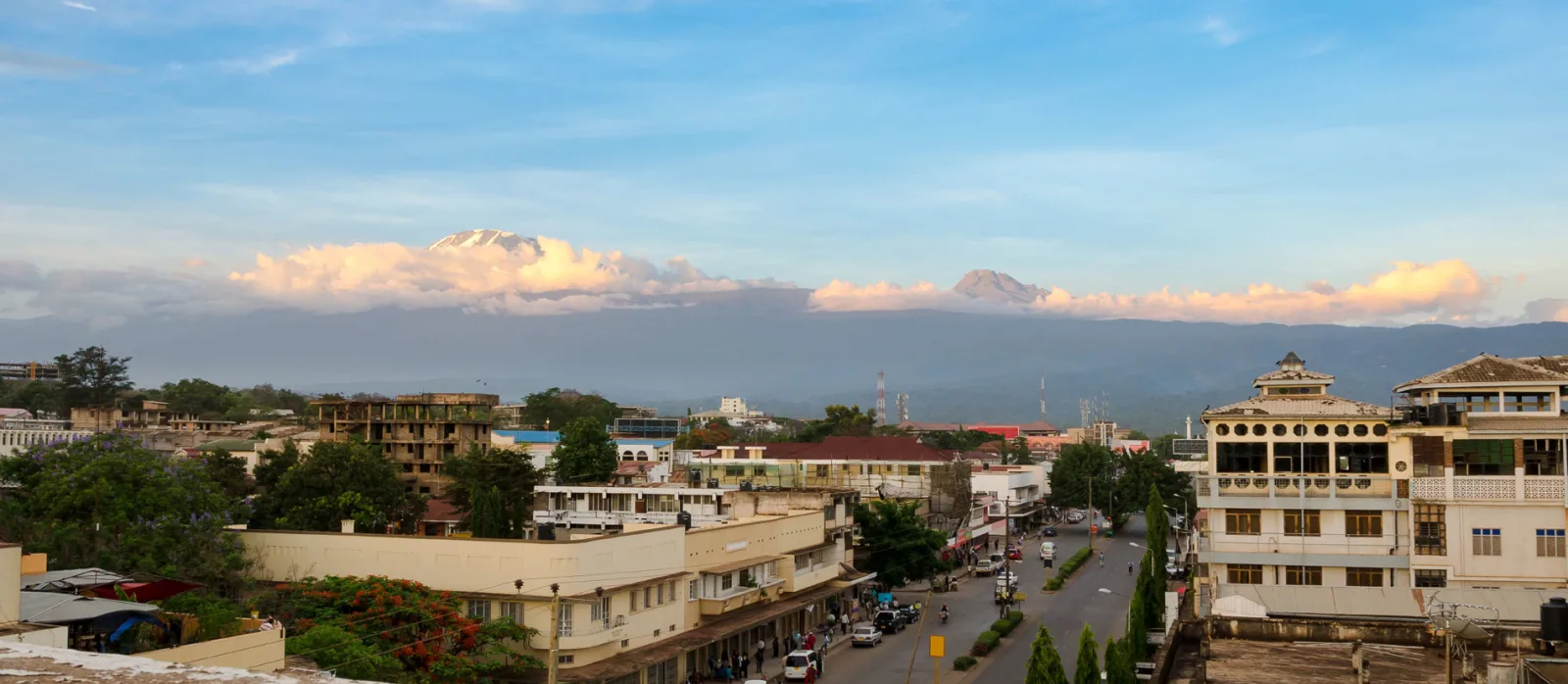
Moshi is a city located in northern Tanzania, at the foot of Mount Kilimanjaro and is the capital of the Kilimanjaro Region. With about 201.150 (2017) inhabitants it is one of northern Tanzanias most important cities.
The area has been inhabited for thousands of years, with evidence of early human settlements dating back to the Stone Age.
In the 19th century, Moshi became an important center of trade and commerce, as it was located on the trade routes between the coast and the interior of Tanzania. Arab traders established settlements in the area, and by the late 1800s, German colonial forces had taken control of the region.
During the German colonial period, which lasted from the late 1800s until World War I, Moshi grew in importance as a center of agriculture, particularly coffee cultivation. German settlers established large coffee plantations in the area, which became an important source of income for the colony.
After World War I, Tanzania became a British protectorate, and Moshi continued to grow and develop as a center of agriculture and trade. In the 1950s and 1960s, Moshi was an important center of the anti-colonial struggle, and played a key role in the movement for Tanzanian independence, which was achieved in 1961.
Today, Moshi is a thriving city with a diverse population and a growing economy. It is an important center of tourism, as it is the gateway to Mount Kilimanjaro, one of Africa’s most iconic landmarks. The city is also known for its coffee and other agricultural products, as well as its vibrant cultural scene, which includes music, dance, and art.
